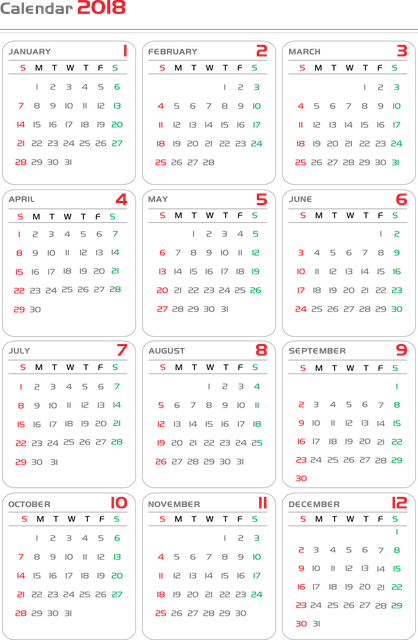The integration of Registered Training Organisation (RTO) calendar syncing and automated scheduling systems is crucial for maintaining operational efficiency within the education sector. These advanced tools enable seamless coordination among all stakeholders, ensuring that training schedules, deadlines, and key dates are consistent and up-to-date across various platforms. This synchronization not only streamlines communication but also reduces the risk of human error and discrepancies, thereby helping RTOs adhere to stringent regulatory standards. Automated scheduling for Registered Training Organisations further enhances efficiency by cutting down manual scheduling efforts, allowing staff to focus more on delivering quality education. The systems provide intelligent alerts for important dates and monitor student progress, enabling trainers to tailor their teaching methods effectively. By leveraging these tools, RTOs can significantly boost productivity, refine training delivery, and foster a high-quality learning environment that supports the success of their training programmes, ultimately positioning themselves as leaders in the competitive marketplace.
In the fast-paced landscape of education and training, Registered Training Organisations (RTOs) are under constant pressure to optimise their operations and ensure compliance while delivering high-quality training. This article explores a pivotal tool for RTOs: calendar tools. By harnessing the power of calendar syncing, automated scheduling, and strategic planning, these organisations can significantly boost efficiency. We’ll delve into how integrating such tools enhances resource allocation, streamlines operations, and fosters collaboration, ultimately leading to a more productive and compliant RTO environment. Join us as we navigate the best practices for leveraging calendar tools within the context of an RTO, ensuring that your training delivery remains effective and aligned with educational standards.
- Leveraging Calendar Syncing to Streamline RTO Operations
- The Role of Automated Scheduling in Optimizing Training Delivery for Registered Training Organisations
- Integrating Calendar Tools to Enhance Resource Allocation and Management in RTOs
- Strategic Planning with Shared Calendars: A Collaborative Approach for RTOs
- Utilizing Advanced Calendar Features to Improve Compliance Tracking for RTOs
- Best Practices for Maximizing Productivity with Calendar Tools in Registered Training Organisations
Leveraging Calendar Syncing to Streamline RTO Operations

In the realm of Registered Training Organisations (RTOs), the synchronisation of calendars plays a pivotal role in streamlining operations and enhancing productivity. By utilising calendar syncing features, RTOs can ensure that all stakeholders—trainers, students, administrative staff, and management—are aligned with the latest timetables, course schedules, and critical event dates. This synchronisation eliminates the manual effort typically involved in updating multiple calendars across different platforms, thus reducing the likelihood of scheduling conflicts and errors. By adopting a centralised calendar system that supports syncing capabilities, RTOs can maintain a consistent overview of all training activities, which is crucial for delivering a seamless educational experience. The ability to keep track of training sessions, assessments, and other important dates in real-time not only improves the planning process but also allows for better resource allocation, ensuring that trainers are where they need to be and when, without overlap or downtime.
Furthermore, incorporating automated scheduling solutions tailored specifically for Registered Training Organisations can further boost efficiency. These tools can intelligently manage recurring tasks, automatically reschedule cancelled sessions, and optimise timetables based on enrolment numbers and trainer availability. Such automation not only saves time but also provides a more reliable framework for managing the dynamic nature of RTO operations. By harnessing the power of advanced calendar tools designed for RTOs, organisations can achieve a level of precision and flexibility that supports their operational goals, ultimately leading to improved productivity and learner satisfaction.
The Role of Automated Scheduling in Optimizing Training Delivery for Registered Training Organisations

In the realm of educational delivery, Registered Training Organisations (RTOs) play a pivotal role in ensuring that training programmes are effectively executed and that learners receive timely education. A key component in this process is the ability to manage schedules efficiently. Automated scheduling for RTOs can significantly enhance the way training sessions are delivered by synchronising educational activities with students’ availability, thereby eliminating the manual effort and potential for human error associated with traditional scheduling methods. By leveraging robust calendar syncing tools specifically designed for RTOs, training providers can align their educational offerings with both the academic calendar and individual learner schedules. This alignment ensures that coursework progresses uninterrupted, and learners stay on track with their learning objectives. Moreover, these automated systems can dynamically adjust to changes in availability or unexpected events, maintaining a consistent and predictable schedule that facilitates better planning for both the RTO and its students. As a result, RTOs can boost efficiency with calendar tools, creating an environment where training delivery is not just optimised but also streamlined for peak performance. This not only enhances the learning experience but also allows RTOs to maximise their productivity by focusing on core educational objectives rather than administrative tasks associated with scheduling coordination.
Integrating Calendar Tools to Enhance Resource Allocation and Management in RTOs

In today’s fast-paced educational environment, Registered Training Organisations (RTOs) are under constant pressure to optimise their operations for maximum productivity and student satisfaction. A pivotal aspect of this challenge is effective resource allocation and management, ensuring that trainers, facilities, and materials are used in the most efficient manner. Integrating calendar tools tailored for RTOs can significantly enhance these operational facets. By leveraging calendar syncing capabilities, RTOs can maintain a unified schedule across all departments, from administrative staff to teaching personnel. This synchronisation ensures that all stakeholders have real-time access to the latest information, reducing conflicts and maximising the use of available resources. Furthermore, with automated scheduling for Registered Training Organisations, the process of assigning trainers to classes, booking training rooms, and organising learning materials becomes a seamless operation. Automated systems can intelligently sort through availability, qualifications, and preferences to create schedules that not only optimise resource usage but also comply with regulatory requirements. By adopting these advanced calendar tools, RTOs can boost efficiency, enhance student learning experiences, and streamline administrative tasks, all of which contribute to the overarching goal of delivering quality education in a competitive marketplace. Boost efficiency with calendar tools for Registered Training Organisations becomes not just a strategic advantage but an essential component in the successful management of educational programmes.
Strategic Planning with Shared Calendars: A Collaborative Approach for RTOs

In today’s fast-paced educational environment, Registered Training Organisations (RTOs) can significantly enhance their operational productivity by leveraging strategic planning with shared calendars. This collaborative approach harnesses the capabilities of advanced calendar tools that facilitate synchronisation across all stakeholders involved in the training process. By implementing register training organisation calendar syncing, educators and administrators can align schedules for classes, assessments, and training sessions seamlessly, ensuring everyone is on the same page—literally and figuratively. This level of coordination is essential to maintain a consistent learning trajectory for students, which is pivotal for their academic success and the RTO’s compliance with regulatory standards. Furthermore, automated scheduling for Registered Training Organisations can be integrated into these shared calendars to streamline task assignments, deadlines, and resource allocations. This automation frees up valuable time for staff to focus on delivering quality education rather than managing administrative tasks. By boosting efficiency with calendar tools for Registered Training Organisations, RTOs can create a more harmonious and productive educational ecosystem, ultimately enhancing the learning experience for students and facilitating better outcomes for the organisation as a whole.
Utilizing Advanced Calendar Features to Improve Compliance Tracking for RTOs

In the realm of education and vocational training, Registered Training Organisations (RTOs) play a pivotal role in ensuring compliance with a multitude of regulatory requirements. A key aspect of this compliance involves meticulously tracking various training schedules, assessments, and educational timelines. Utilizing advanced calendar features can significantly streamline these processes. By integrating the latest calendar tools designed for RTOs, organisations can achieve seamless syncing across all platforms, ensuring that training schedules are up-to-date and accessible to all stakeholders. This synchronicity eliminates discrepancies and fosters a cohesive environment where all training activities are aligned with regulatory standards. Advanced calendar tools offer automated scheduling capabilities tailored specifically for RTOs, allowing educators and administrators to concentrate on delivering quality education rather than managing schedules manually. This automation not only saves valuable time but also reduces the likelihood of human error that could potentially lead to non-compliance. By leveraging these sophisticated features, RTOs can enhance their overall operational efficiency, ensuring that every aspect of training delivery is optimised and in full compliance with the relevant educational frameworks.
Furthermore, incorporating advanced calendar tools into the daily operations of an RTO extends beyond mere scheduling. These tools are equipped with intelligent alerts and reminders for upcoming deadlines, assessments, and reporting requirements, keeping RTO staff informed and prepared. They also facilitate the tracking of student progress, enabling trainers to tailor their instruction to meet individual needs more effectively. With robust integrations and the ability to manage resources efficiently, calendar tools for Registered Training Organisations become a cornerstone in maintaining compliance and fostering an environment conducive to learning. The strategic deployment of these tools empowers RTOs to boost efficiency and uphold the highest standards of education delivery.
Best Practices for Maximizing Productivity with Calendar Tools in Registered Training Organisations

In a Registered Training Organisation (RTO), leveraging calendar tools effectively can significantly enhance operational productivity and streamline training delivery. To maximize productivity with calendar tools, it is imperative to implement best practices that align with the unique needs of an RTO. One such practice is ‘registered training organisation calendar syncing’, which ensures all stakeholders—trainers, students, administrative staff, and management—are on the same page regarding schedules, deadlines, and important dates. This synchronisation eliminates discrepancies and fosters a cohesive environment where everyone’s time is valued and utilised optimally.
Furthermore, incorporating ‘automated scheduling for Registered Training Organisations’ can boost efficiency by reducing the manual effort typically required to organise training sessions, assessments, and administrative tasks. Automation tools can intelligently manage timetables, automate reminders, and even reschedule events when conflicts arise. By doing so, these tools free up valuable time for RTOs to focus on core educational activities, ensuring that the learning experience remains uninterrupted and of high quality. Boost efficiency with calendar tools for Registered Training Organisations by adopting a strategic approach to scheduling and synchronisation, thereby creating an environment where training programmes can flourish without unnecessary logistical hurdles.
In conclusion, integrating calendar tools into the operations of a Registered Training Organisation can significantly enhance productivity and streamline RTO activities. By leveraging calendar syncing, automated scheduling, and strategic planning with shared calendars, RTOs can achieve a more collaborative and efficient learning environment. These advanced calendar features not only facilitate better resource allocation and management but also aid in maintaining compliance tracking, ensuring that all training delivery is up to date with industry standards. Adhering to best practices for utilizing these tools maximizes the benefits, thereby positioning RTOs to boost efficiency and deliver superior training outcomes. Implementing a comprehensive calendar system tailored to the unique needs of an RTO can thus be a transformative step towards operational excellence.



